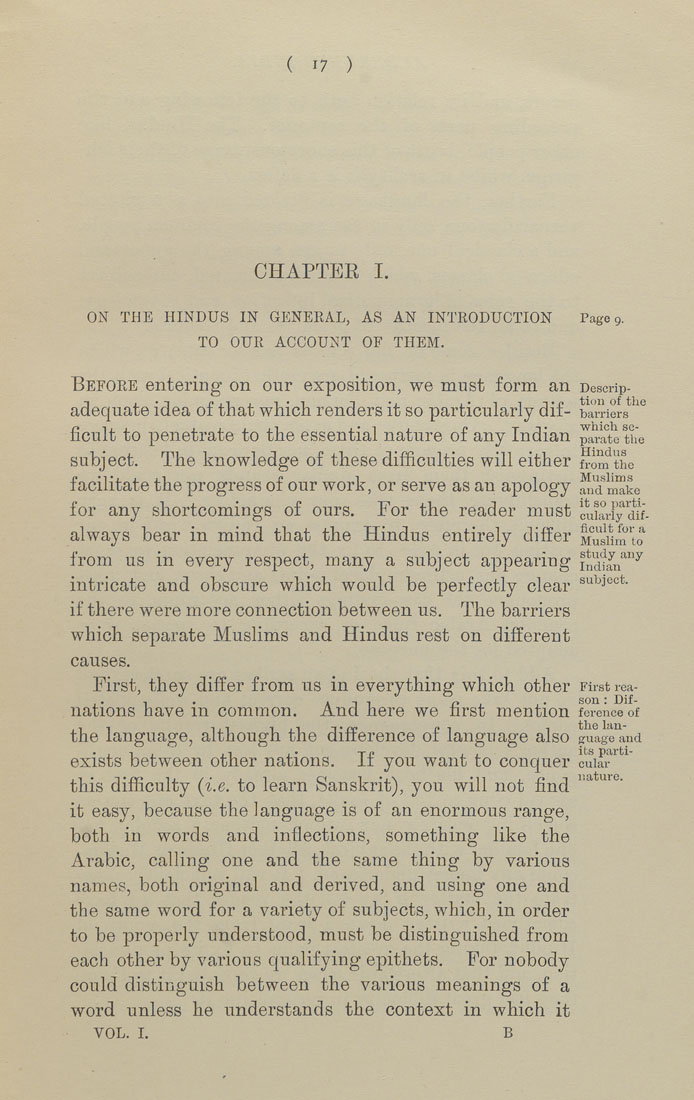Bīrūnī, Muḥammad ibn Aḥmad, Alberuni's India (v. 1)
(London : Kegan Paul, Trench, Trübner & Co., 1910.)
|
||
|
|
|
|
| Page 17 |

( 17 ) CHAPTER I. ON THE HINDUS IN GENERAL, AS AN INTRODUCTION Page 9. TO OUR ACCOUNT OF THEM. Before entering on our exposition, we must form an Descrip- adequate idea of that which renders it so particularly dif- barriers '° ficult to penetrate to the essential nature of any Indian ^ara°te tue subject. The knowledge of these difficulties will either fro^tL facilitate the progress of our work, or serve as an apology .^iTmaL for any shortcomings of ours. For the reader must cuiariy"dif- always bear in mind that the Hindus entirely differ Muslim'to from us in every respect, many a subject appearing in^tan™^ intricate and obscure which would be perfectly clear ™^^J°°*- if there were more connection between us. The barriers which separate Muslims and Hindus rest on different causes. First, they differ from us in everything which other First rca- nations have in common. And here we first mention fcroAceof the language, although the difference of language also ^uageand exists between other nations. If you want to conquer cuiar"^ ^ this difficulty (i.e. to learn Sanskrit), you will not find it easy, because the language is of an enormous range, both in words and inflections, something like the Arabic, calling one and the same thing by various names, both original and derived, and using one and the same word for a variety of subjects, which, in order to be properly understood, must be distinguished from each other by various qualifying epithets. For nobody could distinguish between the various meanings of a word unless he understands the context in which it VOL. L B |
| Page 17 |







